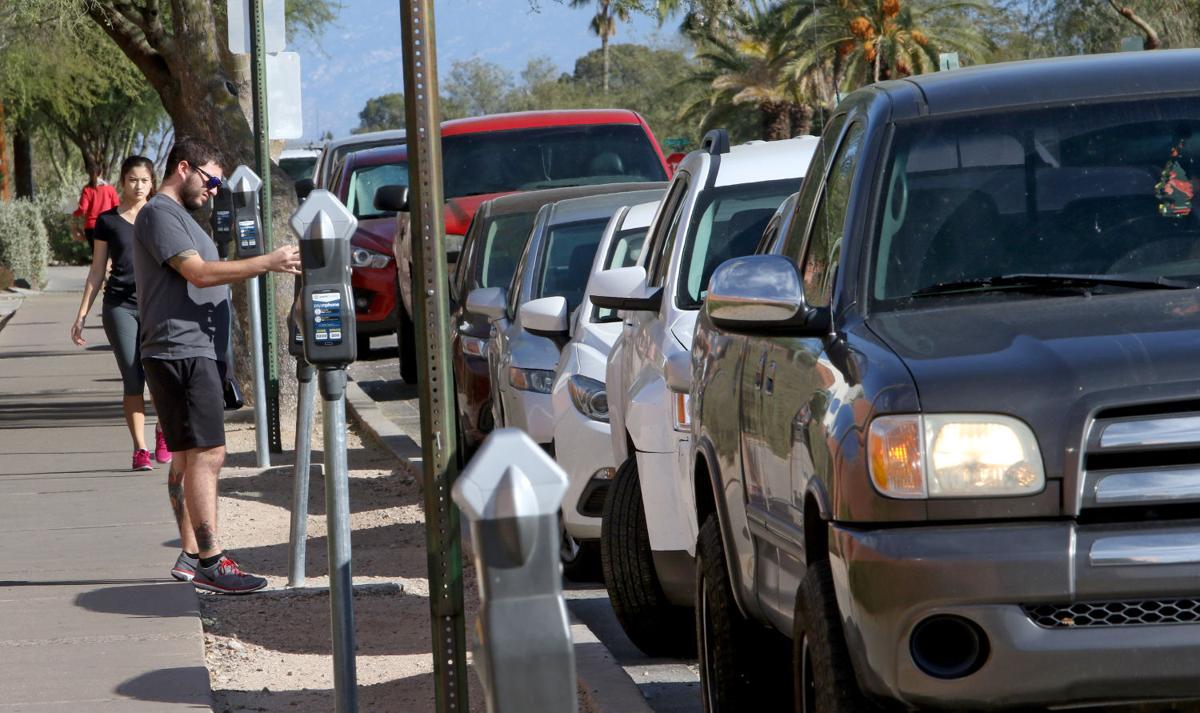Several midtown and university-area neighborhoods require permits to park on the streets.
The city developed this permitted on-street parking plan with the cooperation of the neighborhoods to reduce the parking free-for-all that occurred in the areas, especially around campus. It also is to provide funding for neighborhood improvements.
While the first benefit has been realized, residents have yet to see the city make good on the second.
“It really has improved our safety and congestion,” said Mark Homan with the Rincon Heights Neighborhood Association, but added, “We haven’t seen a penny.”
The city’s Residential Parking Permit Program was conceived in 1983. Neighborhoods like Rincon Heights were some of the early participants.
According to the city’s website: “Programs protect and improve the quality of life and character in the neighborhood by reducing the amount of overflow parking, discouraging cut-through traffic, ensuring adequate parking spaces for citizens who live in the neighborhood, and developing revenues that can be used for reinvestment in the area.”
Homan said after years of participation in the program, the city still hasn’t provided any of that promised revenue.
That’s been a discouragement for Rincon Heights residents, he said.
“Our participation rate has dropped significantly,” Homan said, adding the association no longer actively encourages residents to buy the permits.
Homan said only about 13 percent of Rincon Heights residents have permits.
He said neighbors first agreed to buy parking permits in exchange for the congestion alleviation and the benefits of some of the money going toward improvements in their neighborhood.
Next, the city installed parking meters in parts of the neighborhood, again promising a share of the profit.
The latest addition has been the sale of assigned on-street parking spaces in certain areas.
“We kept being promised this stuff,” Homan said. “I think people are just frustrated.”
City Councilman Steve Kozachik put it more bluntly.
“It’s your classic bait and switch,” Kozachik said.
No wonder the residents have all but stopped participating in the permit program, he said, because the city has never lived up to its obligations.
“This is about trust again,” Kozachik said. “When we tell groups we’re going to do something, unless we just want to perpetuate the image that our word is no good, we need to stand by our commitments.”
Park Tucson administrator Donovan Durband said the city plans to honor the commitments.
“We’ve been working hard on this for some time,” Durband said.
While acknowledging that the city has never made payments from the residential parking program to any of the participating neighborhoods, he notes the program has never made a profit and had no money to give.
“The program has never broken even,” Durband said.
Park Tucson, the city’s parking division that oversees residential parking programs, has a more than $5 million budget for the current year.
As a self-sustaining department, it must generate all of its own revenue. In the current budget, parking meters and other parking revenue will make up nearly $4 million of that budget.
Durband said Park Tucson has made a $35,000 commitment for this budget year and the same amount for next in a grant program for which participating neighborhoods can apply. The money would be used for neighborhood improvements.
Some criteria need to be met, however.
For instance, neighborhoods would need to demonstrate 25 percent participation rates.
Currently, about six of the 15 participating neighborhoods have met the criteria.
“It’s our intention to budget that every year for the next five years,” Durband said.
Down the road
- Construction along River Road continues Monday, Dec. 7, as crews with Pima County Wastewater Reclamation continue repairing and replacing sections of a sewer pipeline.
Work is currently underway along a section of River Road between Longfellow Avenue and Sutton Lane, east of where northbound Alvernon Way turns into River.
Motorists in the area should expect 24-hour traffic controls while work is being completed.
Pima County officials anticipate the work on this section to be completed by Christmas.
The work is part of an interceptor line rehab project that spans a 10-mile stretch of sewer line.
- Crews from the city Department of Transportation plan pothole repairs on Starr Pass Boulevard from La Cholla Boulevard to Mission Road.
The work began last week and will continue through Friday, Dec. 11.
Work hours will be 9 a.m. to 2 p.m. each day.
Speed limits in the work zone will be reduced to 15 mph.





